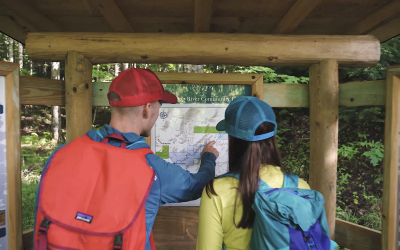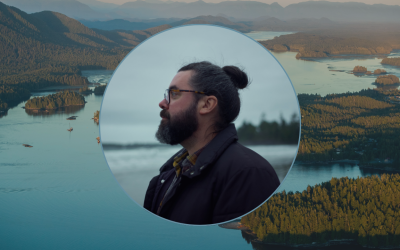“DMO” typically stands for “Destination marketing organization,” which has often been understood, in practice, to mean “promotion,” one of the 4 Ps of Marketing.
But times are changing. As Destination Think CEO Rodney Payne has said, “There has been a lot of discussion in recent years about destination marketing organizations (DMOs) morphing into destination management organizations.”
Anna Pollock, founder of Conscious Host, has added to the conversation with a list of suggested changes for DMOs to transform tourism, including the trend that the “M” in DMO will increasingly stand for management.
Many of today’s destination leaders, including those that participated in Forum 2016, recognize the reality that a focus on promotion is often not enough to succeed. They are now grappling with questions that challenge their organizations’ very existence.
- What is our DMO’s role?
- How can we remain relevant and maintain funding to do our best work?
- How can we adapt with changing visitor behaviour driven by technology?
- How can we create maximum value for both visitors and residents?
- How can we clearly communicate that value?
How are destination leaders responding to these questions?
Palau Visitors Authority is building a management plan that incorporates local culture, environmental sustainability and effective communication to locals and visitors alike.
In Iceland, there is a formal separation between destination promotion and management. The country’s exponential increase in visitation makes management an enormous priority for the future. Vice President of the European Tourism Council (ETC) ” spoke about Iceland’s tourism growth and the broader trends in Europe:
“International travel is on the rise, and people travel for leisure as never before. This is creating new challenges within the tourism sector and, in some cases, tensions that strain the relationship between the industry and the social and natural environment it relies upon. The industry has to develop approaches that facilitate addressing these challenges in a holistic, solution-focused manner. destinations have formal separations between those responsible for destination marketing and destination management.”
Hugh Riley, Secretary General of the Caribbean Tourism Organization, is also taking a holistic approach. He brings the term “DMO” one step further, replacing “management” with “development”:
“‘DMO’ means different things to different people, and in some parts of the world, a DMO is not a destination marketing organization, it is a destination management organization. In my humble opinion, DMOs are going to, in the very near future, become destination development organizations. They’re going to have to look at all aspects of a country’s needs and overall development, and try and meet those needs. DMOs are going to have to look at the kinds of metrics that we were just talking about. They’ll have to look at carrying capacity, but – and nobody wants to talk about this – they’ll have to look at the value of a tourist.”
What’s next for destinations moving toward the “M” of destination management?
Destination Think’s Chief Strategist William Bakker says that DMOs have a stark choice to make as they consider how they will lead their destination’s success.
“We can treat our destinations as commodities and consume what we have as fast as we can at the expense of our citizens and our environment, risking our long-term viability.
“Or we can offer experiences that transform people by creating memories for life, opening people’s minds, or simply strengthening bonds with loved ones. All while contributing to the quality of life for our citizens instead of taking it away.”
Who can make this vision happen?
“Here’s the exciting part: The DMO is the best organization to lead this process. Define success, understand the implications of tourism, and define your destination’s identity and how you can deliver on it. We need to rally our industry to collaborate with destination-wide stakeholders, including our citizens. The implications are big as it will allow us to manage our brand and reputation not through promotion, but through the destination experience.
“I’ve worked with and spoken to hundreds of DMOs over the years. There is one common pattern among them. Strong leaders who are willing to take risks make strong DMOs. It’s not going to be easy. But it can be done. I’ve seen it happen.”
Is your DMO reevaluating its role? The destination marketing industry discussed the industry’s greatest challenges at Destination Think Forum 2016. Download the “Leading your destination into the future” whitepaper to join the conversation.
Featured image credit: Christian Schnettelker, Flickr










I switched to a management over pure marketing mindset regarding the DMO moniker some 15 years ago. Yes, as a DMOs we market our communities, but we also must be active advocates for the destination, be it in it’s development or preservation. Our Destination 2020 Strategic Plan developed in 2013 embraces that approach. It is a vital mindest for the success of DMOs.